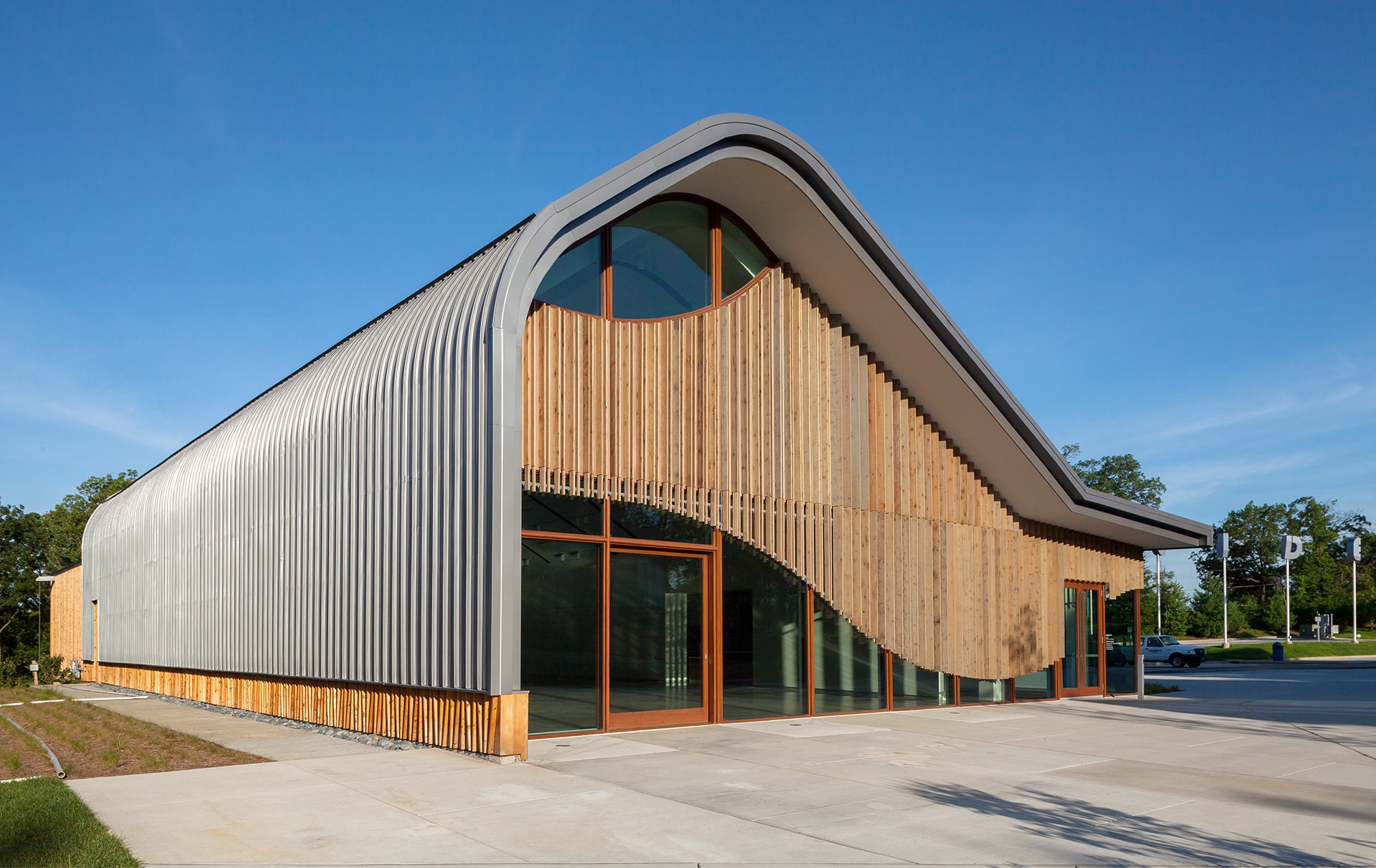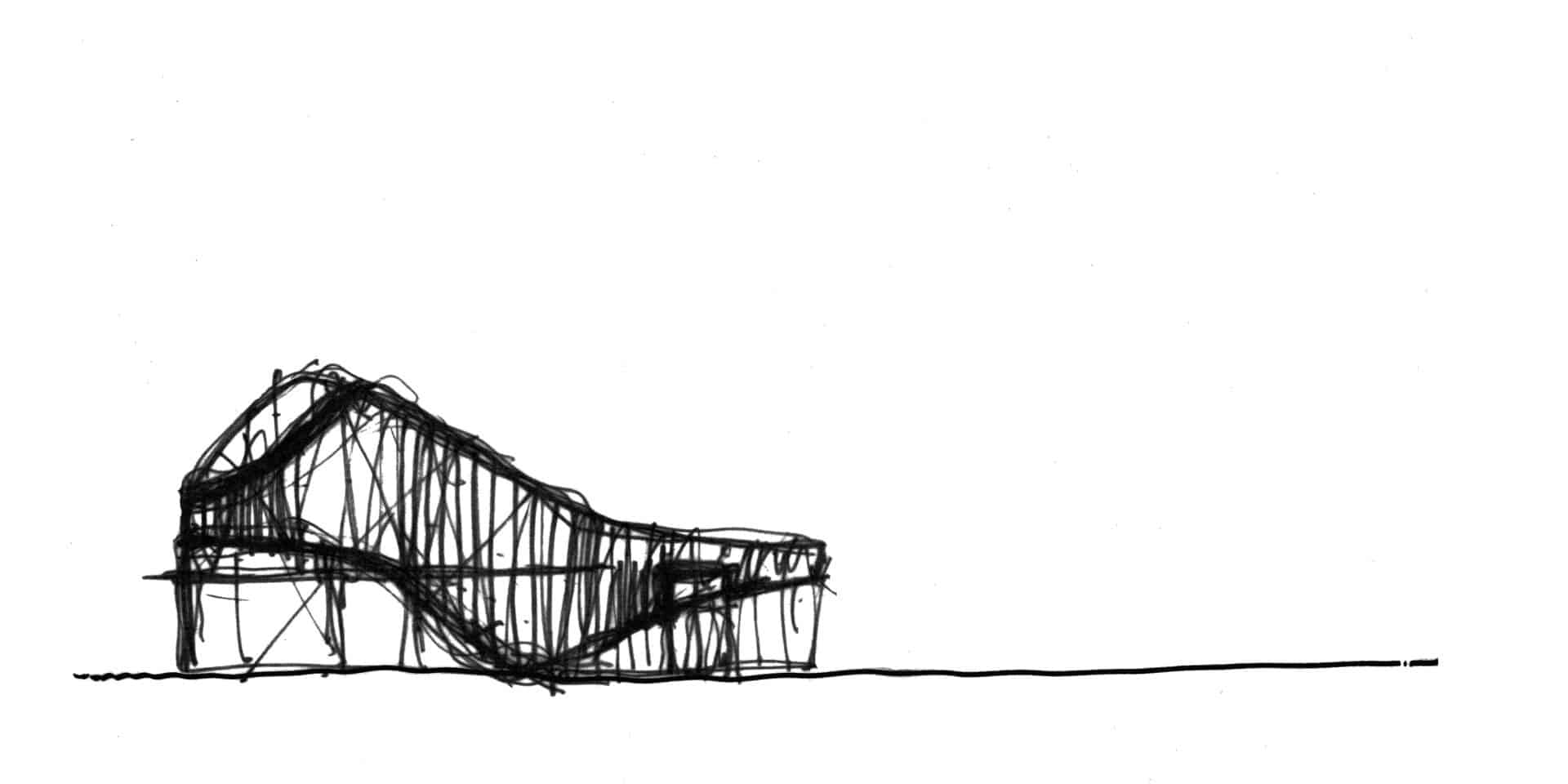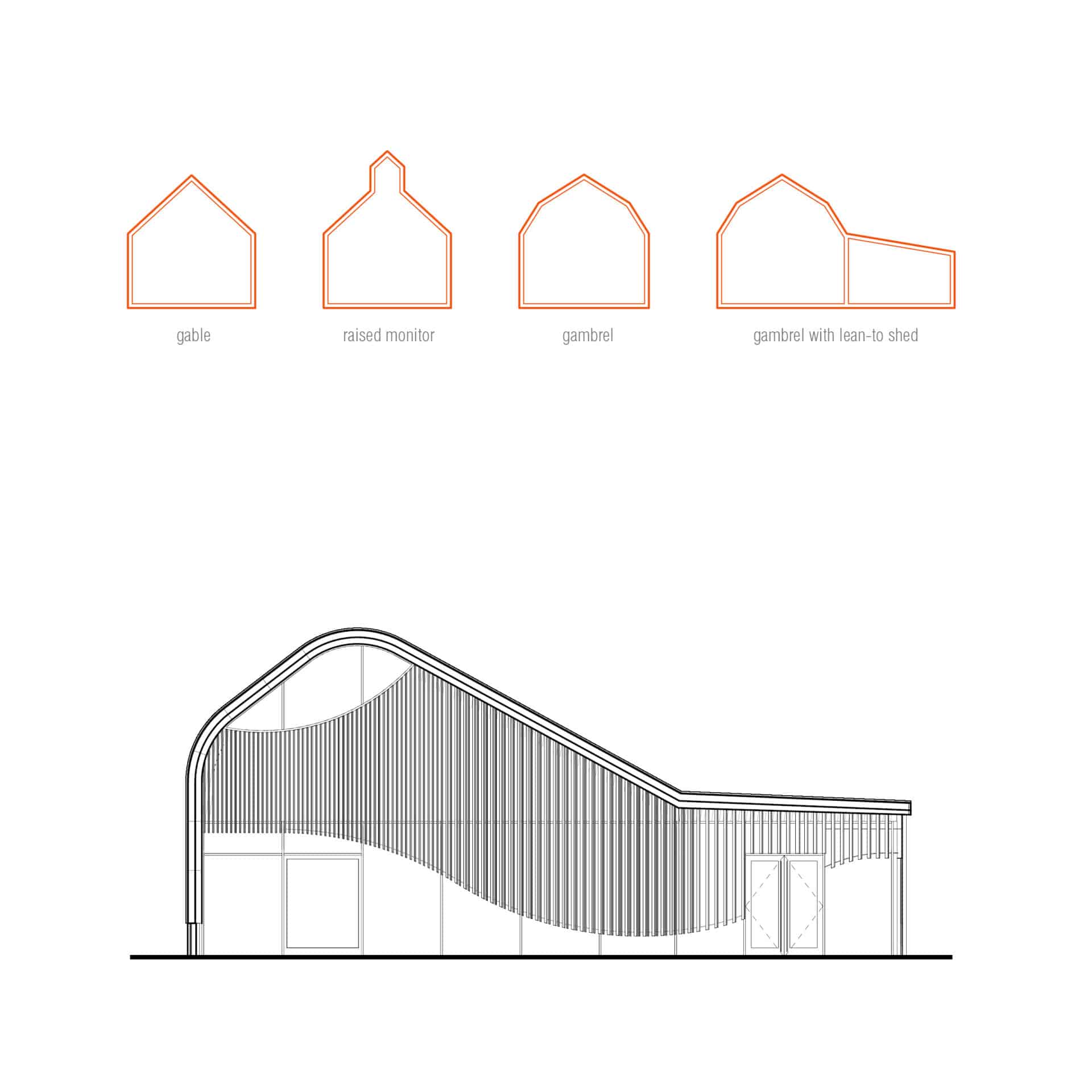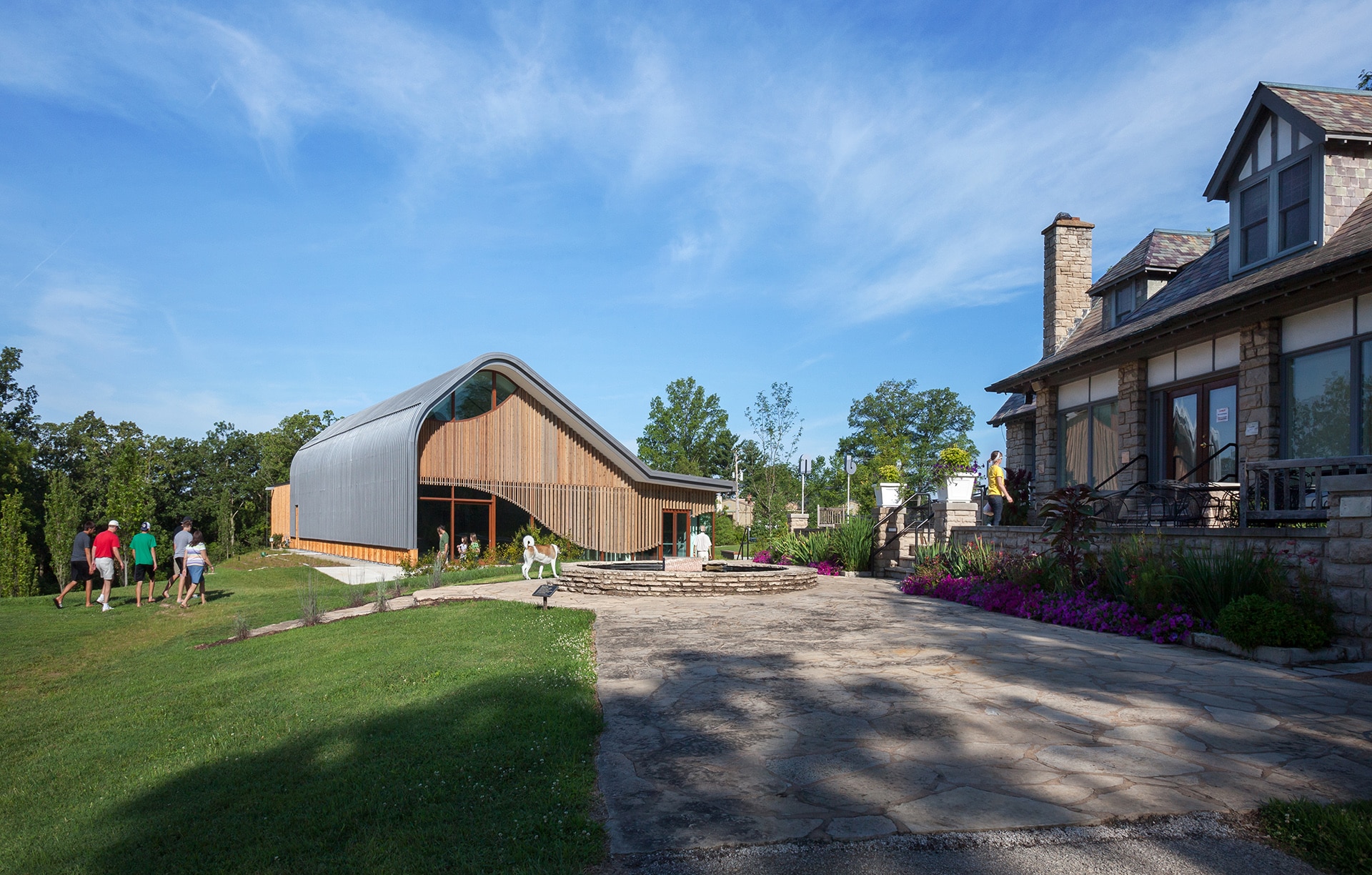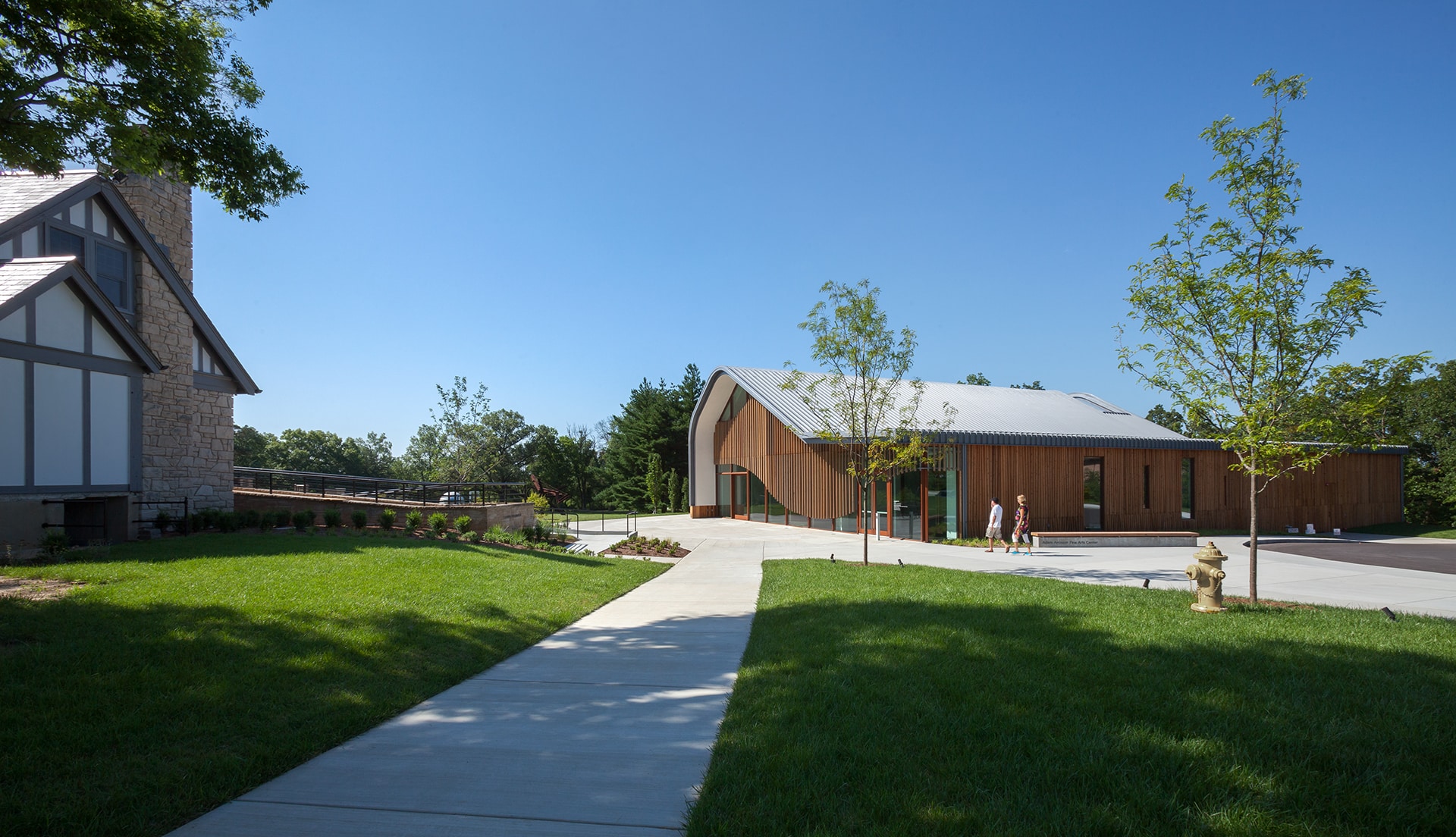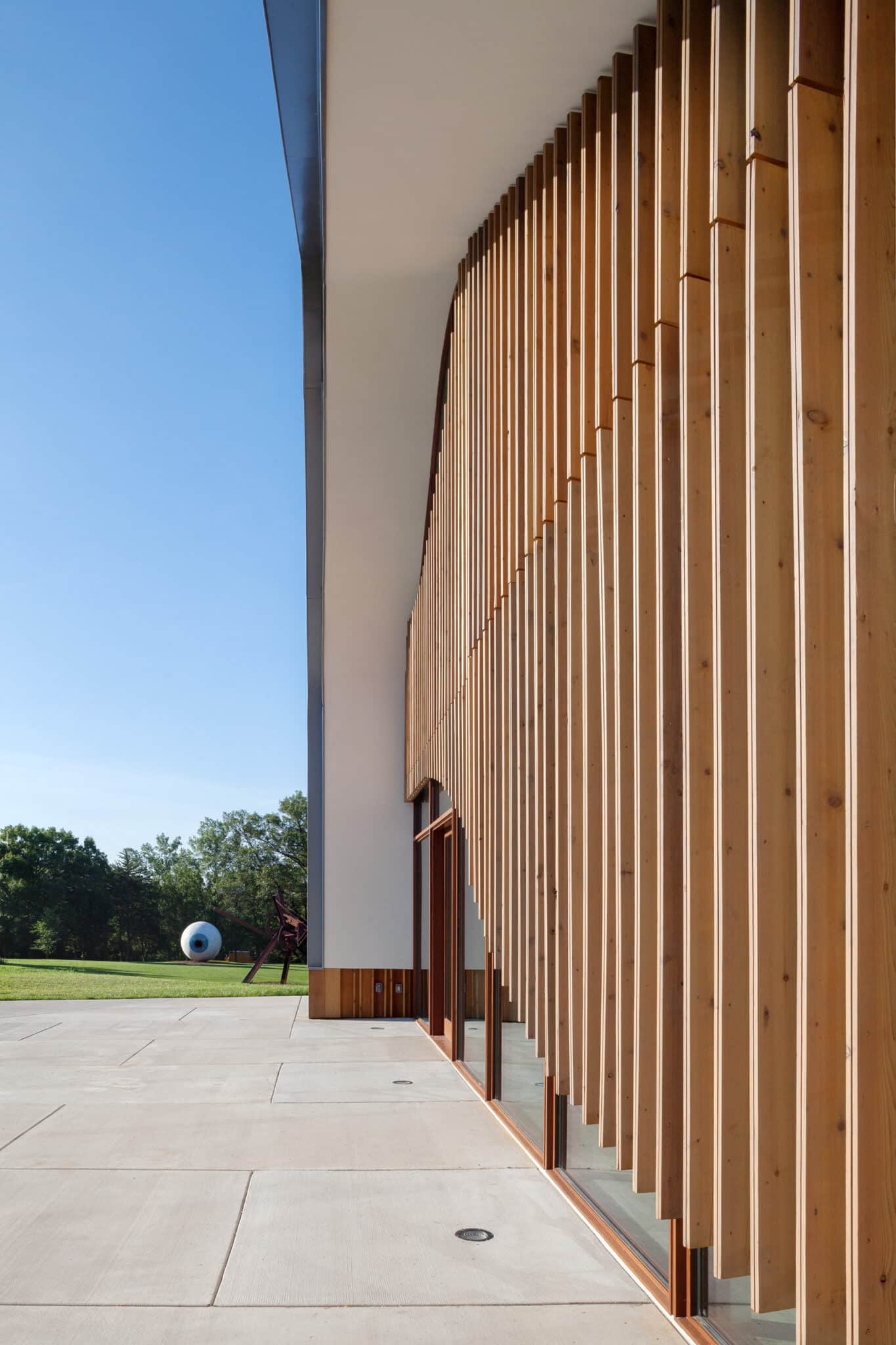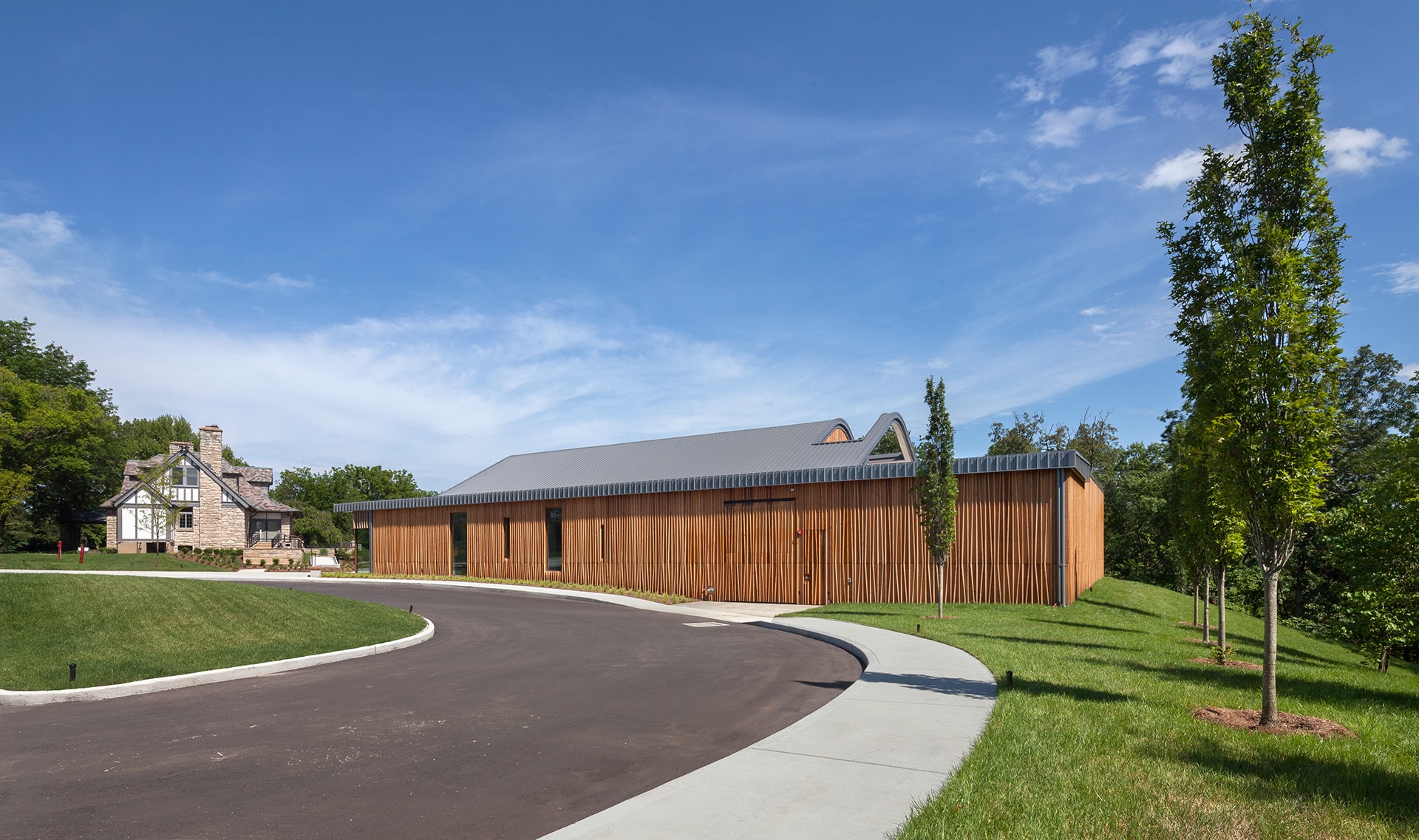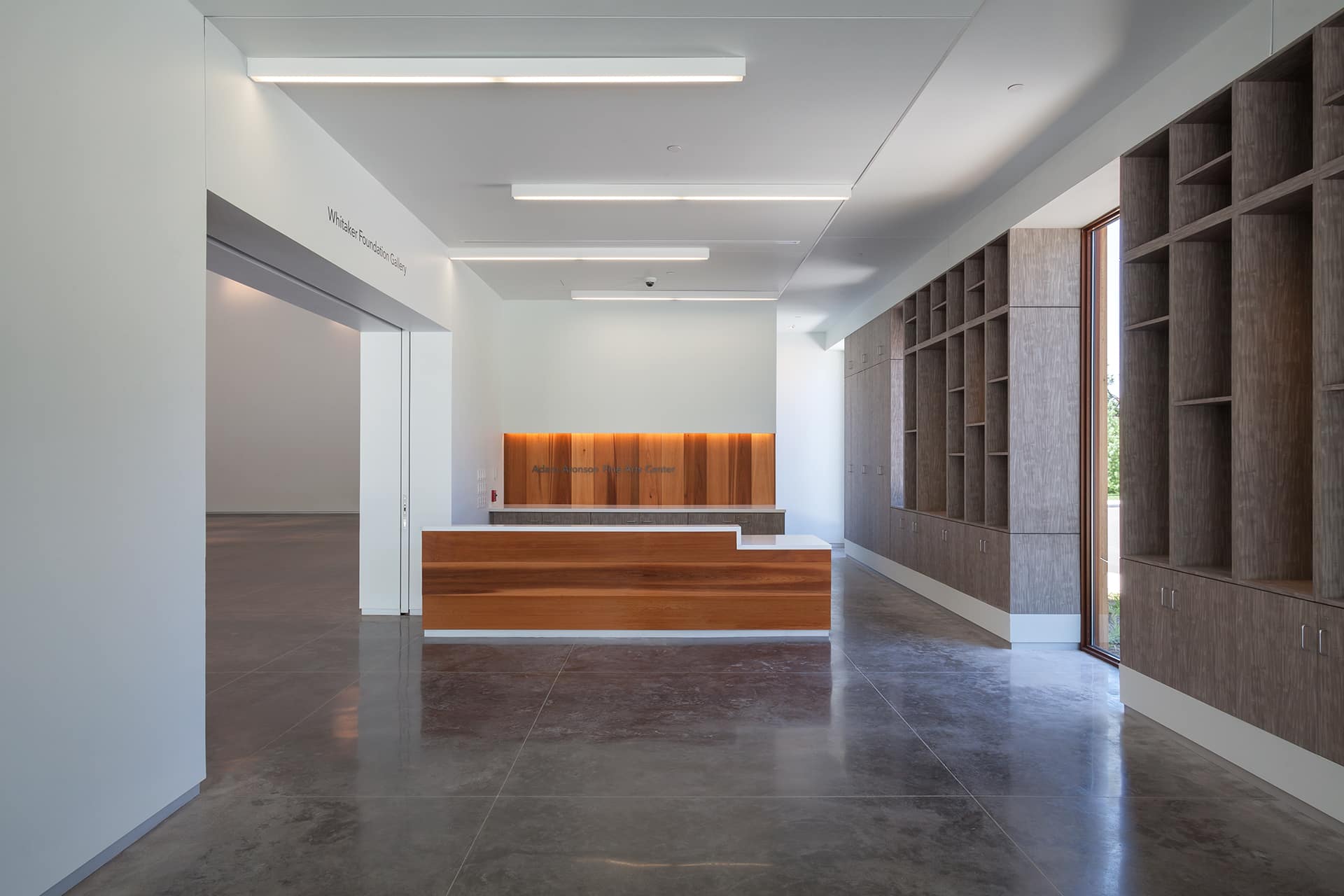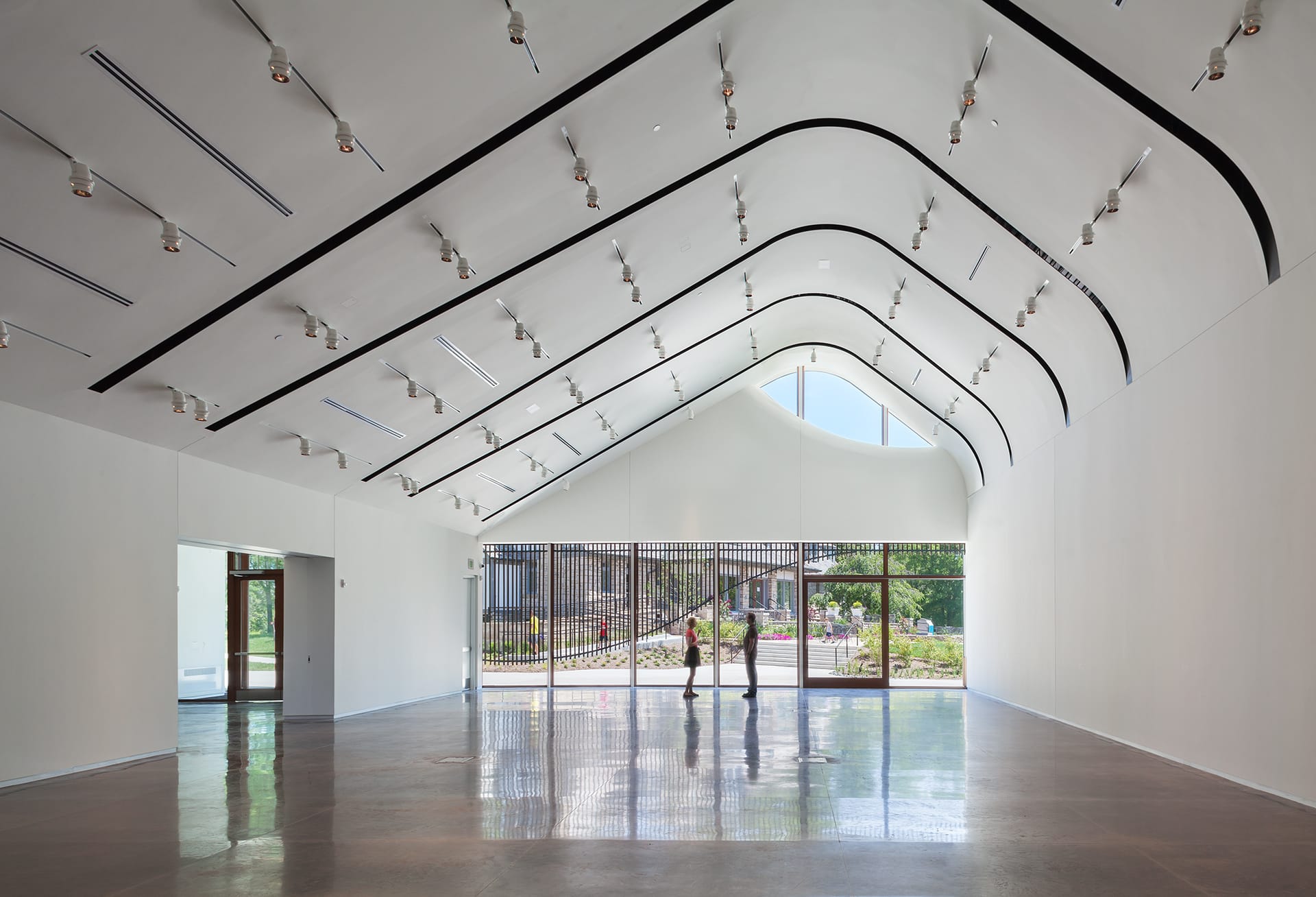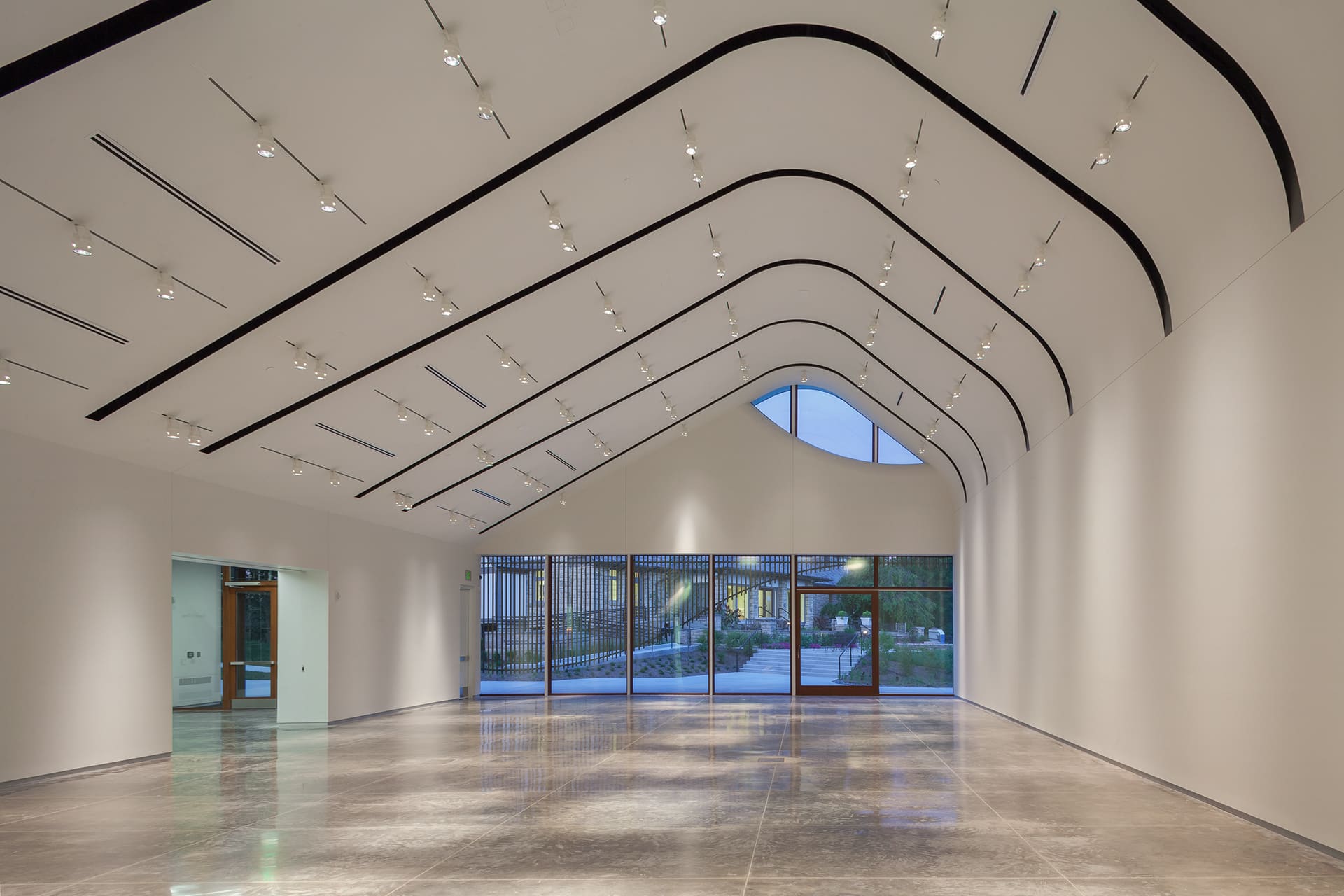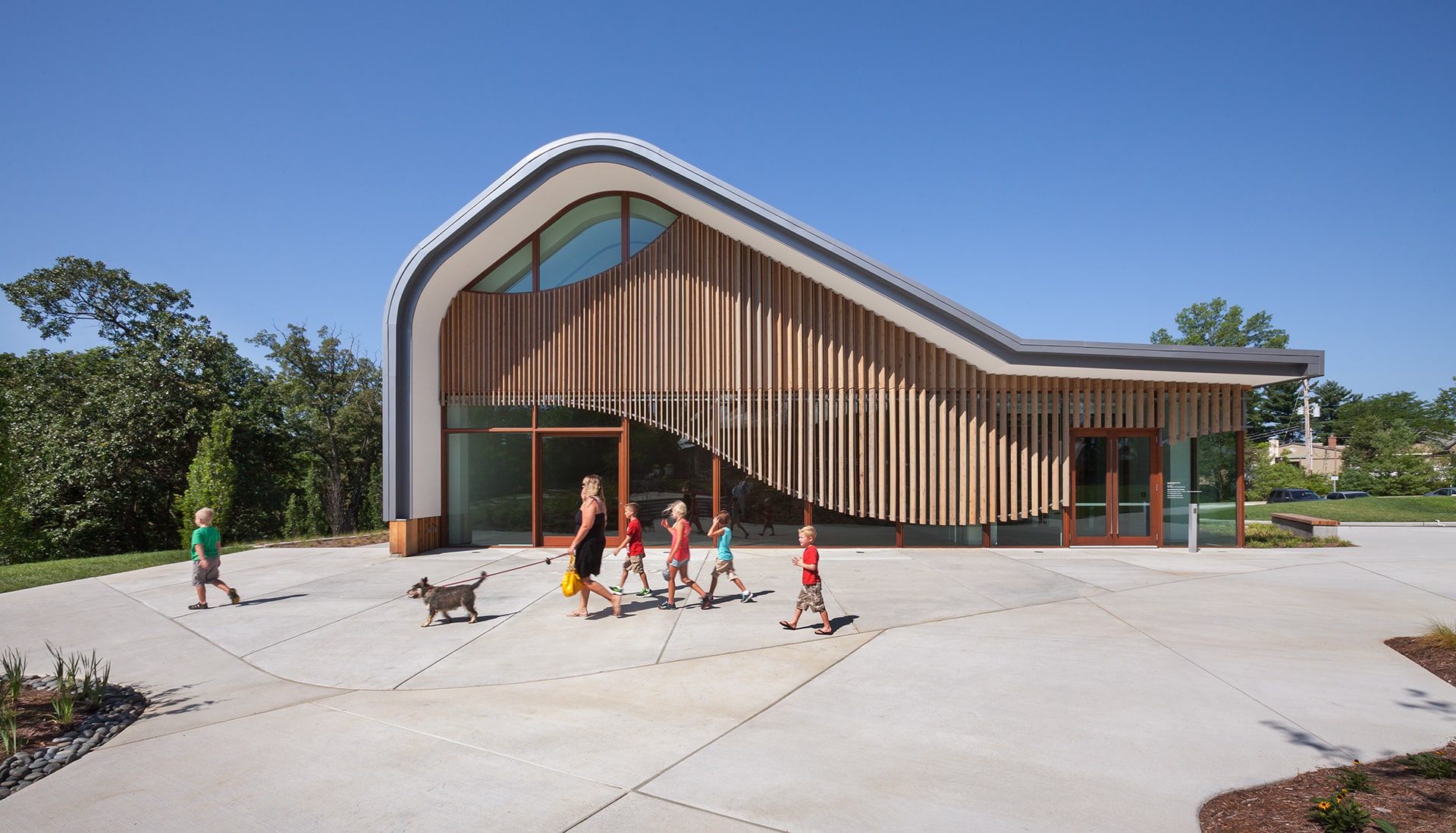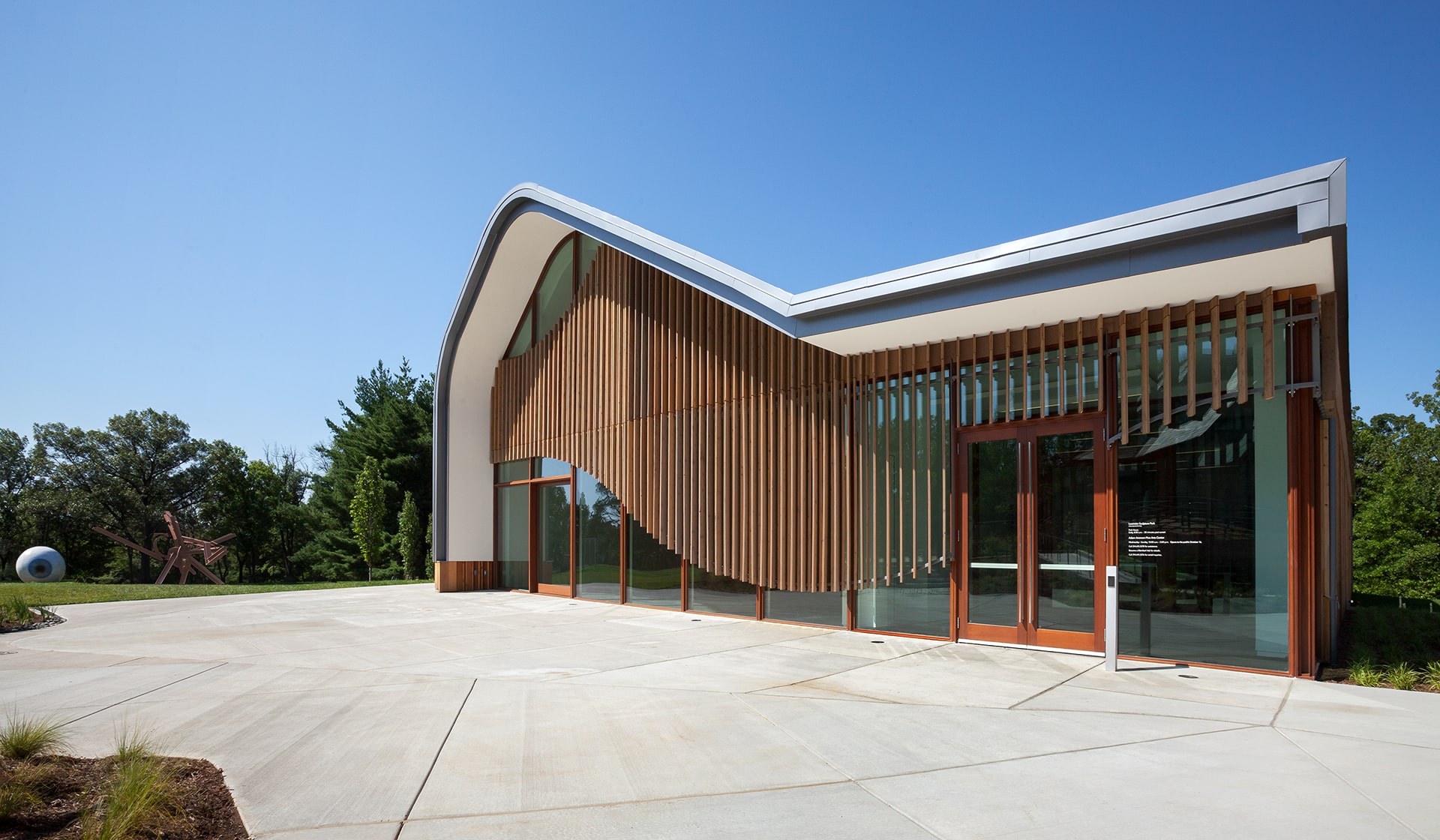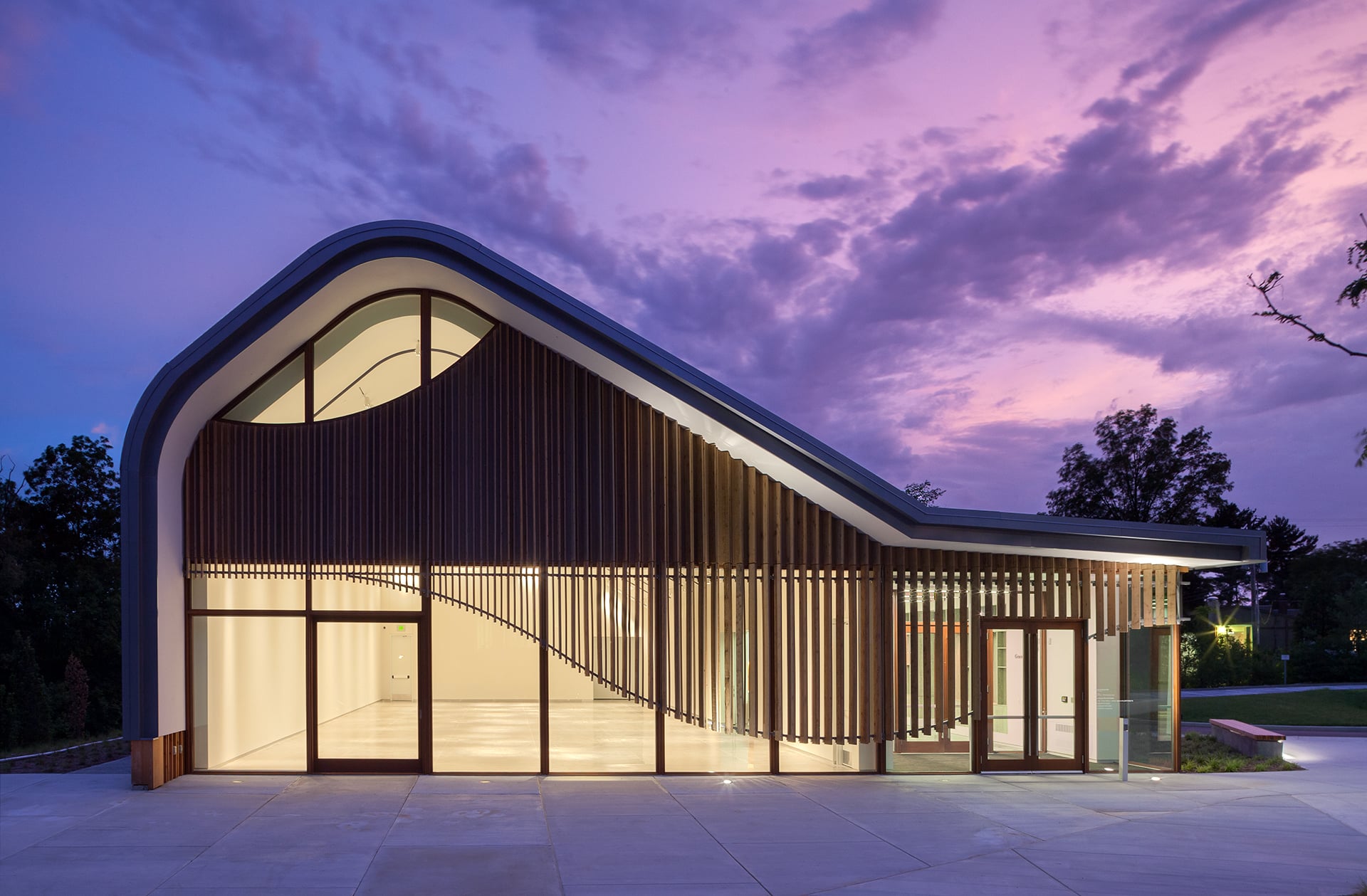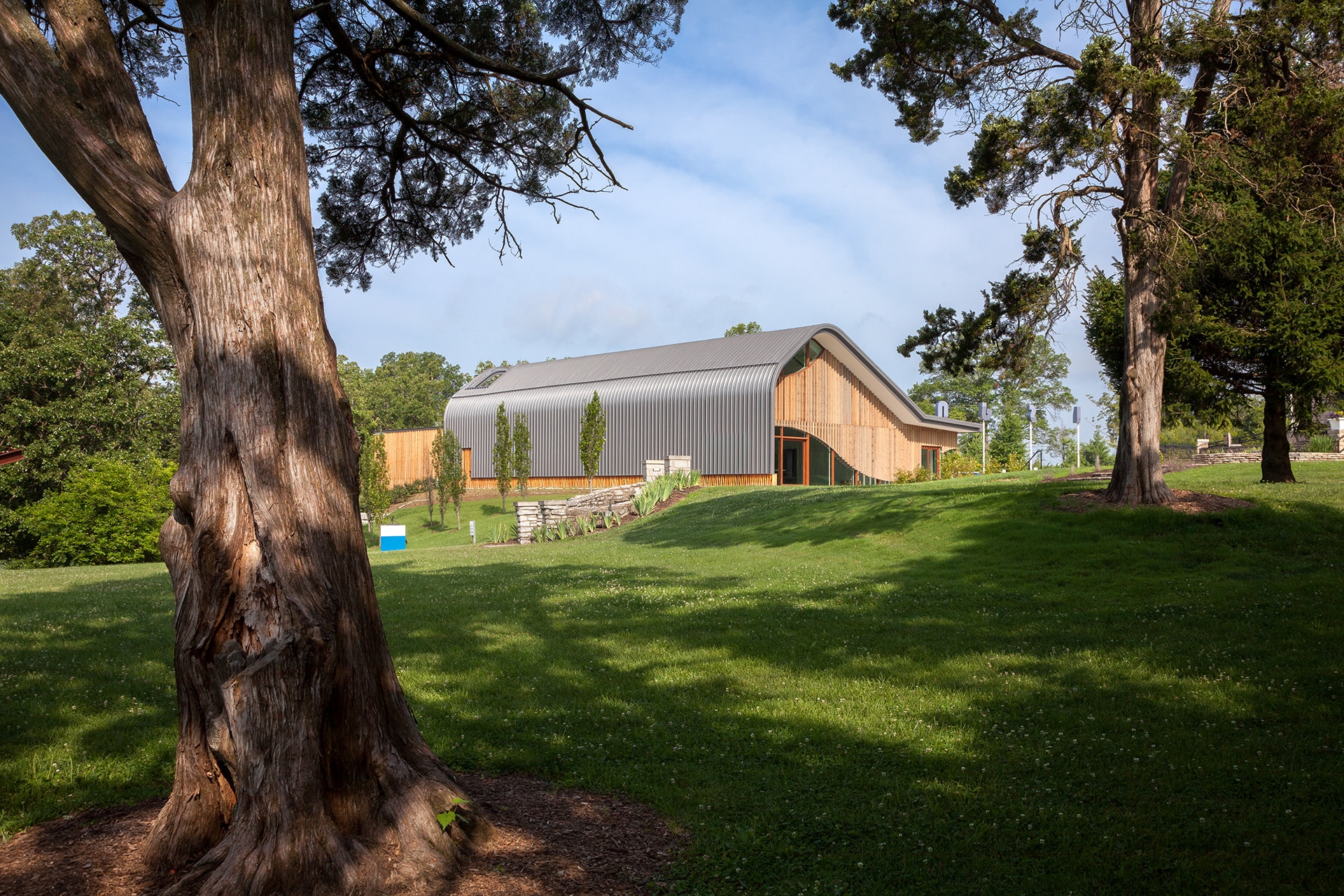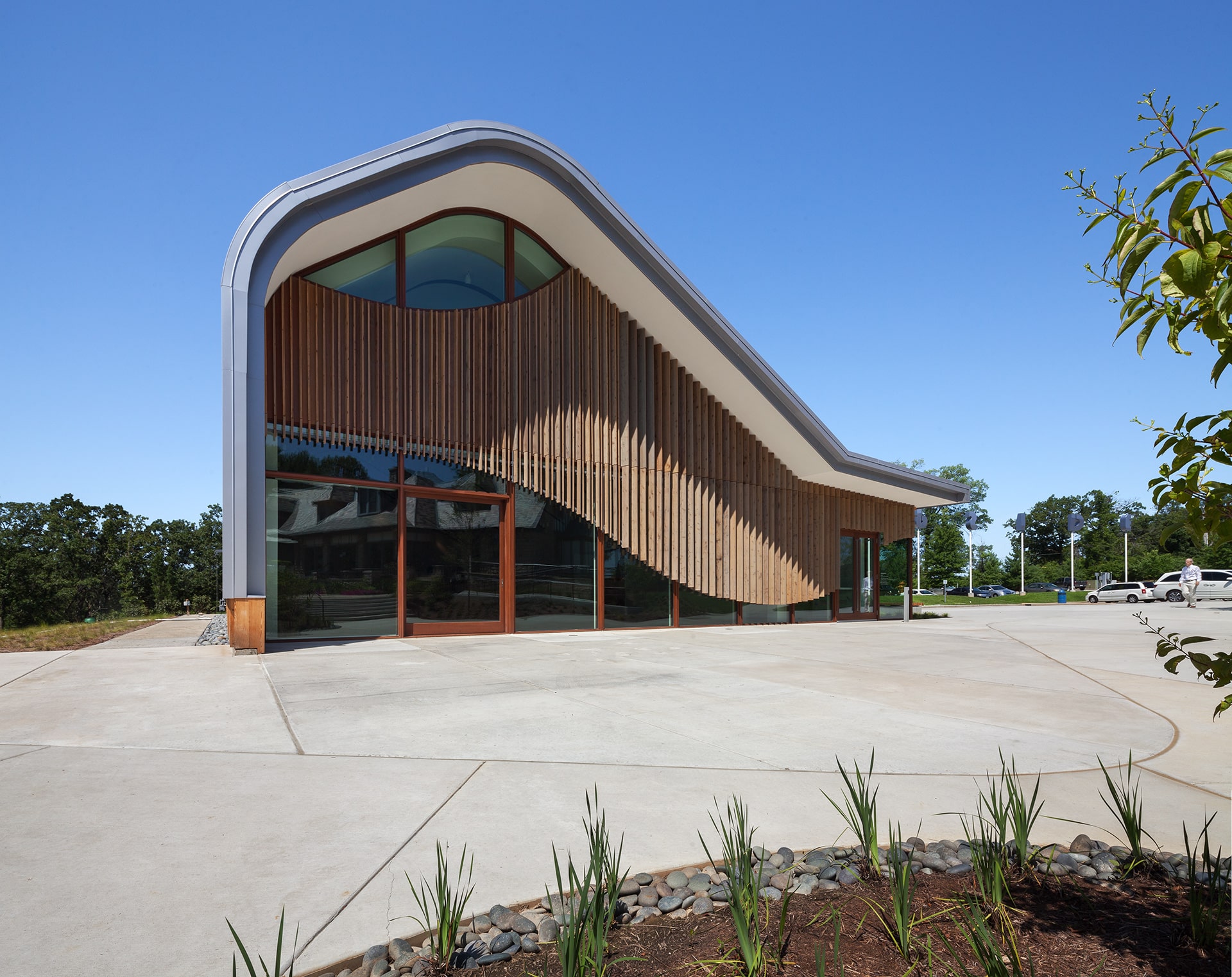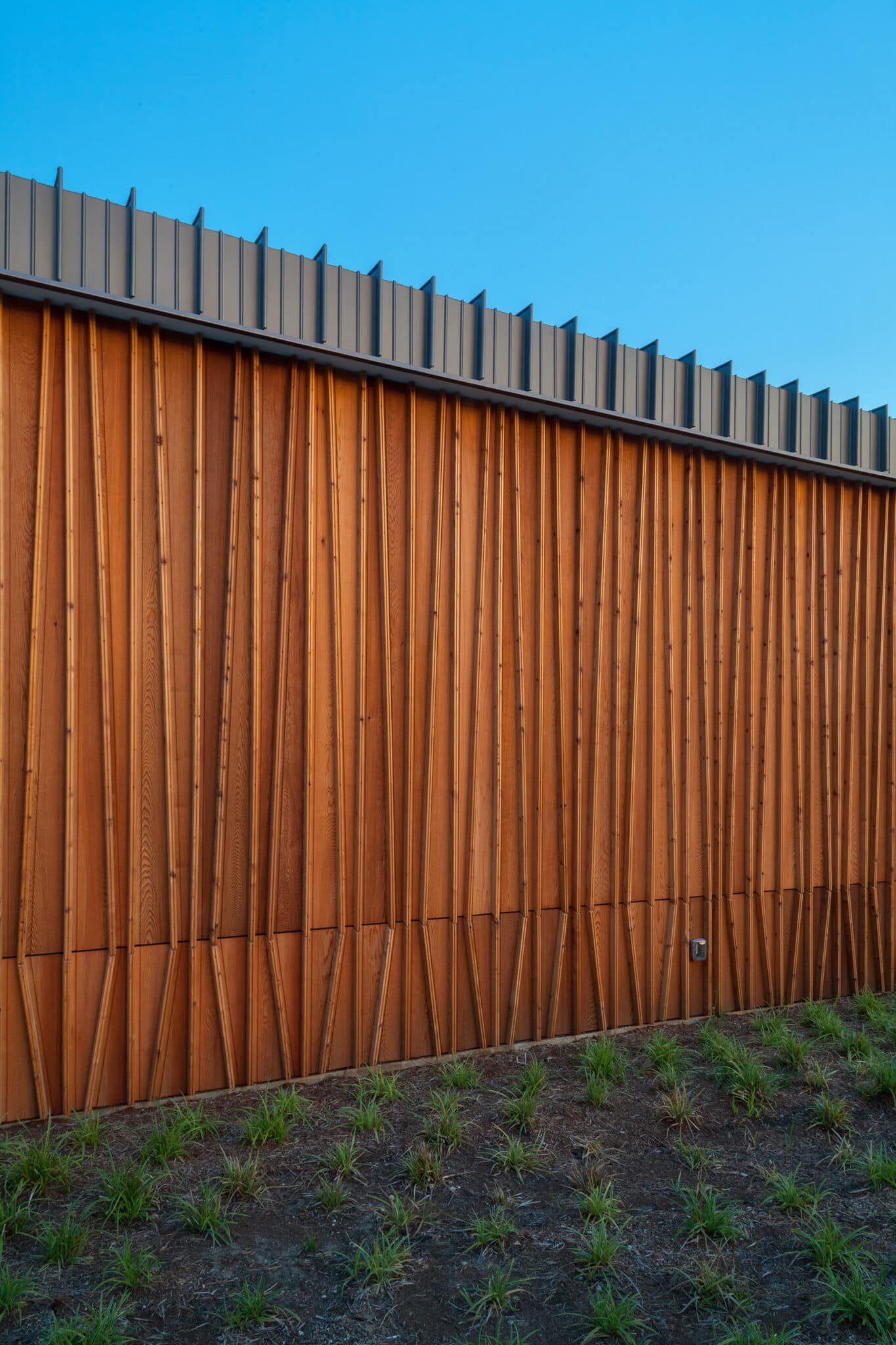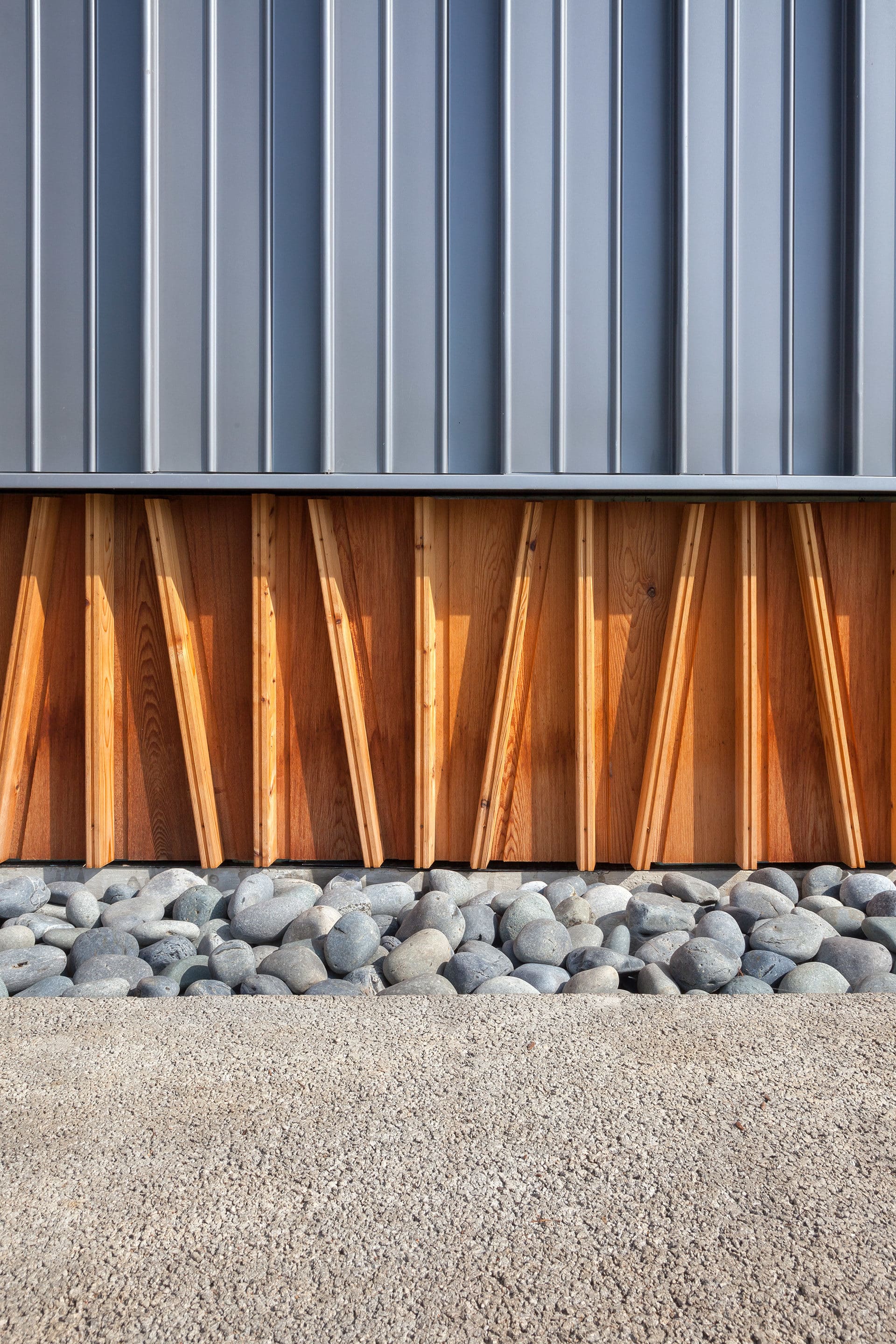Sited on the edge of suburban St. Louis and rural Missouri, Laumeier Sculpture Park is an icon of the arts in the St. Louis region and one the most prestigious open-air museums in the country. In an effort to not only display artwork year-round in a controlled environment, but also enhance their ability to provide high-quality learning experiences for the greater St. Louis community and for visitors from all over the world, Trivers was commissioned to design the new Adam Aronson Fine Arts Center (AAFAC), park entry plaza, and renovate the original Estate House into the Kranzberg Education Lab.
Currently limited by the residential scale, proportions and physical limitations of the Estate House or the unpredictability of weather and the outdoor environment, the addition will allow the park to display work in an unrestricted and protected environment, extending their ability to reach more patrons.
While the genesis of new building form itself evokes the spirit of the site’s past agricultural use, this typology provides a utilitarian function. True to native agricultural styles, the simple volume of the space allows flexibility of the gallery, allowing for exciting explorations in art, yet to be imagined and for the park to host revenue generating functions as well. The inclusion of support spaces (art staging, art archive and a catering kitchen) also provide desperately needed programmatic uses.
Perched on a “plinth”, similar to the rigid geometric plinth of the neighboring stately Estate House, the new building can rest above the sloping grade, giving it proper significance, yet deference to the Estate House. Sophisticated in its massing and materiality, yet divorced of the more formal and rigid confines of early 20th century architecture, this element can become more sculptural in nature, rough in texture, melding between the essence of place and the physical site in which it resides.
By removing the gallery functions from the Estate House, this allows for the first floor to be programmed with a new visitor’s resource center, multi-purpose disciple classroom, painting studio, clay studio, and media room.
The placement of the AAFAC with the Estate House on the site creates a very multi-use public space that encourages a pedestrian flow like a tributary into the main axis of the park. This public space becomes crucial in an increasingly disconnected world. Where the Estate House was built to be a reprieve from the crowded city, this new public place can be a reprieve from the isolation of the suburbs. This common space further reminds us that art and people are inseparable.
